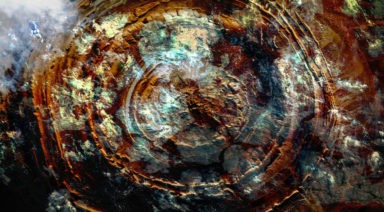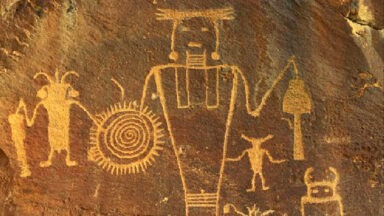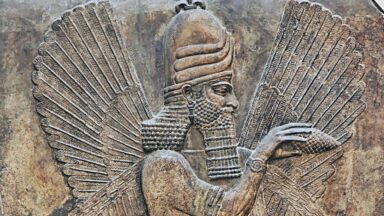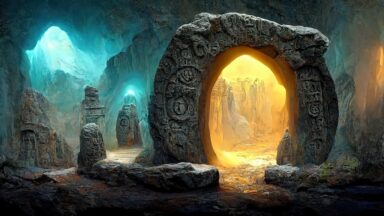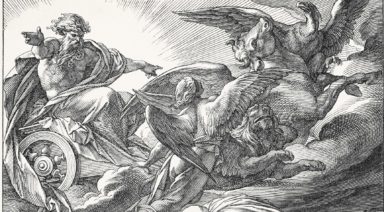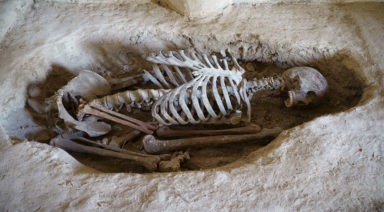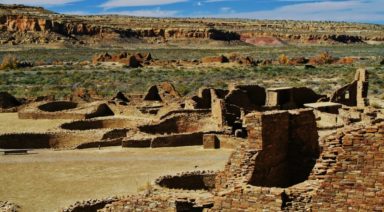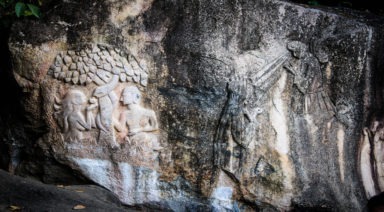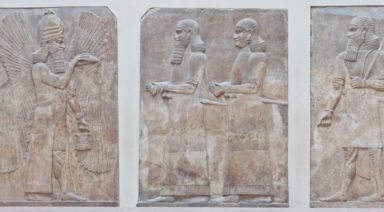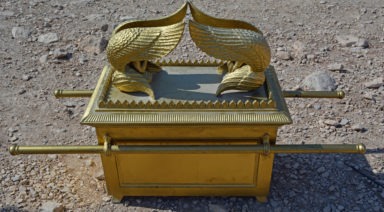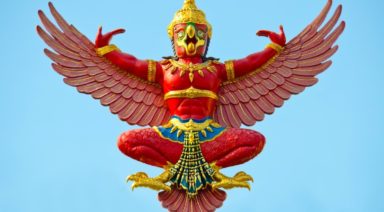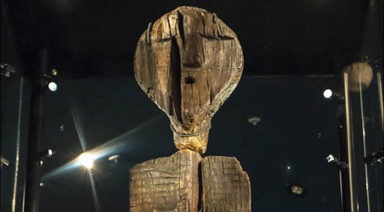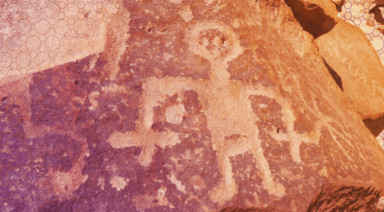Goddesses of Ancient Greece and Rome

It’s safe to say that no mythology has been as influential on Western culture as that of ancient Greece and by extension, Rome. The myths of these civilizations are still popular after thousands of years and have been revised, retold, modernized and embellished in every medium. Stories of Jason and the Argonauts, Hercules, Theseus, the Minotaur, Pegasus, Andromeda and all the other characters, were steeped in drama, adventure and philosophy.
The popularity of the Greek and Roman gods and goddesses is due, in part, to their all too human traits. They got into immense trouble, incurred each other’s wrath, fought amongst themselves and were often less than benevolent to their human worshipers.
The Greek and Roman Goddesses’ impact on the modern world is indisputable.
We still look to Venus as the epitome of love. Mention the goddess Hera and one can’t help but form an image of a betrayed, jealous, angry and vindictive wife. Tales of Artemis set the tone for a strong feminine archetype, dangerous, defiant and without any desire for a partner.
It’s generally accepted that Roman deities were nearly identical to their Greek counterparts, except that the Roman Gods and Goddesses were more serious and less frivolous. This makes sense, as the Roman Empire took itself seriously and viewed their state deities as a vital part of the world order that kept them in control of a vast empire.
Although the Greeks certainly took their deities seriously, they also imbued them with senses of humor, irony, infidelity, fallibility and in the case of Zeus, almost a complete lack of impulse control. It’s for this reason that I’ll focus on the Greek goddesses and allow the reader to infer a slightly less emotional version when thinking about those of Rome. What follows is a brief look at 4 of my favorite Goddesses.
Hera or Juno
Hera was the wife of Zeus and the undisputed Queen of Olympus. Under normal circumstances, that would seem to be a great position, except for the fact that Zeus was probably the most flagrant philanderer in the history of mythology. I’ve always thought that Hera took a lot more than anyone should ever be forced to. She’s often portrayed as being shrill and unpleasant, but I think she came by it honestly.
By any barometer, it’s plain to see that Hera was under a lot of stress, not to mention constant challenges to her self-image, causing a temper that was both dangerous and vindictive. Although she was once considered to be the goddess of proper matrimony and intimate relations within marriage, she’s better known for the vengeance she wrought upon those who wronged her, or were unlucky enough to become the object of her husband’s attentions.
A common thread with all Greek goddesses was that they were not to be messed with, but this was especially true of Hera.
Although she could be profoundly benevolent to those she favored, Hera was better known for her anger. Here are some of Hera’s greatest hits:
Hera Unleashed
Hercules was the son of Zeus, born from a mortal woman. Irritated, one of the first things Hera did was send snakes to kill baby Hercules, but being the palooka he was, he dispatched them quickly. Throughout his life, Hera placed obstacles in Hercules’ path for no other reason than his being the illegitimate son of Zeus. Eventually, she pushed the hero to madness, causing him to murder his wife and children. This horrible tragedy led Hercules to take on the famous 12 labors, cementing his myth as one of the greatest, but at a huge cost.
Io was a beautiful young maiden. She caught the eye of Zeus, much to her misfortune. Hera, true to form, went after the young girl, but Zeus was able to turn her into a beautiful heifer to protect her. Hera, not one to be outdone, sent a gadfly to torment the poor cow forever.
You may have heard of Helen of Troy and Clytemnestra. They were the twin sisters of Castor and Pollux, all born from Leda who’d been “visited” by Zeus in the form of a swan. You can bet that Zeus’s wife wasn’t about to ignore a double set of twins.
The myth of the Golden fleece wouldn’t be complete without including the fact that the reason Hera favored Jason in his journey was revenge. Years earlier, a woman who’d been horribly cruel to her stepchildren, had to face the proverbial music. Knowing that death was imminent, due to her past acts, she sought refuge in the Temple of Hera, imagining that she’d be safe there. Instead, she was murdered on Hera’s alter, beginning a chain of events that would spawn one of the greatest myths known. She chose Jason as her instrument of revenge, as if he were a pawn on a game board.
Zeus was an uncontrolled philanderer and Hera punished those with whom he cavorted, along with their children and children’s children. The effects of his indiscretions often created ripples that impacted families for generations. Perhaps there’s more truth to this than meets the eye.
Aphrodite or Venus
The birth of Aphrodite has more than one version, but my favorite led to one of the most famous paintings in the world, Botticelli’s “The Birth of Venus.” In this version of the myth, Chronos, one of the Titans, castrated his father Uranus, whose testicles fell into the ocean, lost their fluid, which then created the Goddess of Love. There are numerous ways in which this myth is disturbing, but it’s fascinating at the same time.
It gives Aphrodite/Venus the benefit of not having been born, but rather being a consequence of Time (Chronos) and the Universe (Uranus).
Although certain aspects of what we consider to be beautiful are based on cultural or personal idiosyncrasies, there is no doubt that the ability of love to power, shape and reshape the world is almost limitless. This myth implies that Love is universal and timeless.
Just Aphrodite From the Seafoam
Some believe that the name Aphrodite came from the word “Aphros,” meaning foam and referring to what is often called sea-foam, perhaps alluding to her birth. So beautiful was Aphrodite that Zeus declared that in order to keep suitors from fighting over her, she would wed Hephaestus, the God of metallurgy. Hephaestus was brilliant in every way, but decidedly imperfect in appearance. Aphrodite was brazenly unfaithful to Hephaestus.
More often than not, she was forgiven, because of her flawless beauty.
The Greeks seemed keenly aware of the fact that there is a certain helplessness surrounding beauty, not only in adoring those who are beautiful, but in being beautiful, as well. They also acknowledged the absolute truth that the world can be easier for the beautiful, although not always for the better.
Artemis or Diana
Artemis and Apollo were twins. Apollo ruled the day, driving the chariot of the sun. Artemis ruled the night and controlled the moon. She was revered by hunters for the illumination that aided them in the night.
She was a powerful and beautiful deity, not given to foolishness, nor to silly affairs of the heart.
Fiercely protective of the creatures in her domain, she was also a huntress concerned with humane practices in that world. Proud of her abilities, anyone who boasted that they were a better hunter than she, was destined to some sort of grisly death. It’s often thought that Orion was her one true love, yet many myths attribute his demise to his bragging about being the best hunter of all time, his claims offending Artemis. She dealt with his boasts and he ended up as one of the most spectacular constellations of the winter sky; that’s the good news.
In another myth, Acteon, a great hunter, accidentally stumbled upon Artemis while she was bathing. Annoyed, she turned Acteon into a stag and his own hunting dogs tore him to pieces. Oops.
Artemis the Huntress
Artemis was often shown wielding a bow, with a dog and stag at her side. She is one of many ancient goddesses possessing power and formidable fighting skills. The ancients revered this energy in feminine deities like Artemis, Sekhemet, Durga, the Valkyries and others. I’ve always thought that this attribute was due to the reality of the role of the feminine in nature. Not only do mothers give birth to their offspring, but they will defend them to the death. Yet, our culture has seen fit to view women as diminutive and needing to be protected and through that, not as competent or capable as men.
This atrocity of characterization will only be corrected through a rejection of stifling, antiquated viewpoints and the reemergence of the fact that male and female, together, are destined and designed to work this earth in unison.
Anything less is an insult to humanity and an invitation to incur the wrath of all warrior goddesses, never a good idea.
Persephone or Prosperine
Although not born a goddess, Persephone became the queen of the underworld and the wife of Hades. Her story is a fascinating one that holds much for those willing to contemplate it.
Persephone’s original name was Kore. She was the daughter of Demeter, the goddess of grains, earth, agriculture and fertility. So beautiful was Kore, that she was sought after by Apollo and Hermes, but to no avail, since Demeter did not find them worthy of her daughter. Hades, the king of the underworld, became infatuated with Kore and requested that his brother, Zeus, allow him to take her by force to his realm. This permission was necessary, as it was forbidden for Hades to do anything above the ground without the permission of Zeus, who agreed.
Hades erupted from beneath the Earth with his team of black horses, nabbed Kore and returned to the underworld.
Most of us know the rest of the story, especially the part about Demeter forging a deal to bring Kore back above ground, but only under the condition that she’d not eaten anything. Although only having ingested a few pomegranate seeds, she was destined to spend part of the year with Hades and part of the year with her mother. This simple myth is much more than an explanation of winter and the end of the growing season. It actually exposes a deep and profound philosophy of life, death and rebirth.
Queen of the Underworld
Renamed Persephone, our heroine rules in the underworld with her husband and seems to love being the queen of the realm. In some cults, she was known as the unnamed one, or she whose name must not be spoken. She was both loved and feared and speaks to the real truth of the transition that comes over all of us when we leave our childhood homes and embark upon adulthood. None of us stays the same. We connect with a partner and become a part of each other; we become something different than we were. As human beings, we change every day, although we may appear to be the same.
We live and eventually we die. What then? Persephone and Hades provided answers to that and other questions, but only to the initiated.
Until that time, we should live, love and embrace each day fervently and without fear, for although the wonderful stories of gods, goddesses and humans have persisted through time, they point out how much we’ve changed and yet how much we’re the same.
This is the true gift of our ancestors, to illuminate the richness in life, give hope for the future and to live fully in the present.
I wish you all peace and love.
Has the City of Atlantis Been Discovered in the Eye of the Sahara?
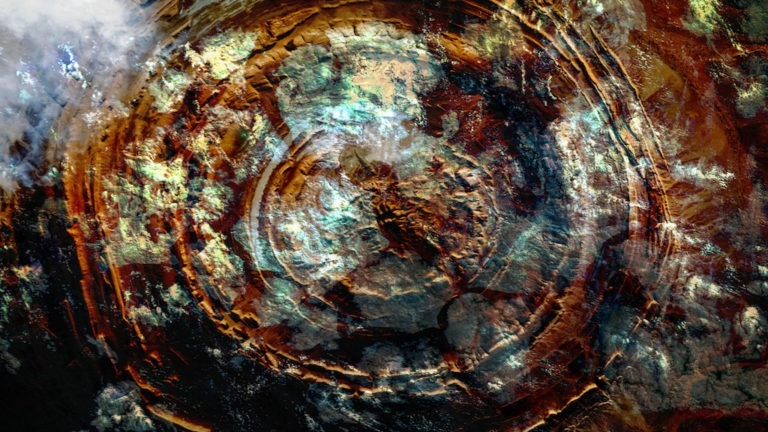
If you feel challenged by our relatively unconscious society, you may be one of the many dreamers who fantasize about the lost city of Atlantis. Some believe the Eye of the Sahara in Mauritania holds the secrets we’ve long imagined to be true. Stretching 14.6 miles across, the Eye appears to be from another world. Considering Plato’s writings on the subject, it’s possible this incredible structure is the final resting place of millions of Atlanteans.
While Plato’s descriptions of Atlantis are epic and mind-blowing, many believe he barely scratched the surface. He described Atlantis as a massive formation of concentric circles, alternating between land and water, similar to how the Eye is seen today. He emphasized that Atlantis was a wealthy, utopian civilization that created the basis for the Athenian democratic model. Plato then described the land as rich in gold, silver, copper, other precious metals, and gemstones.



